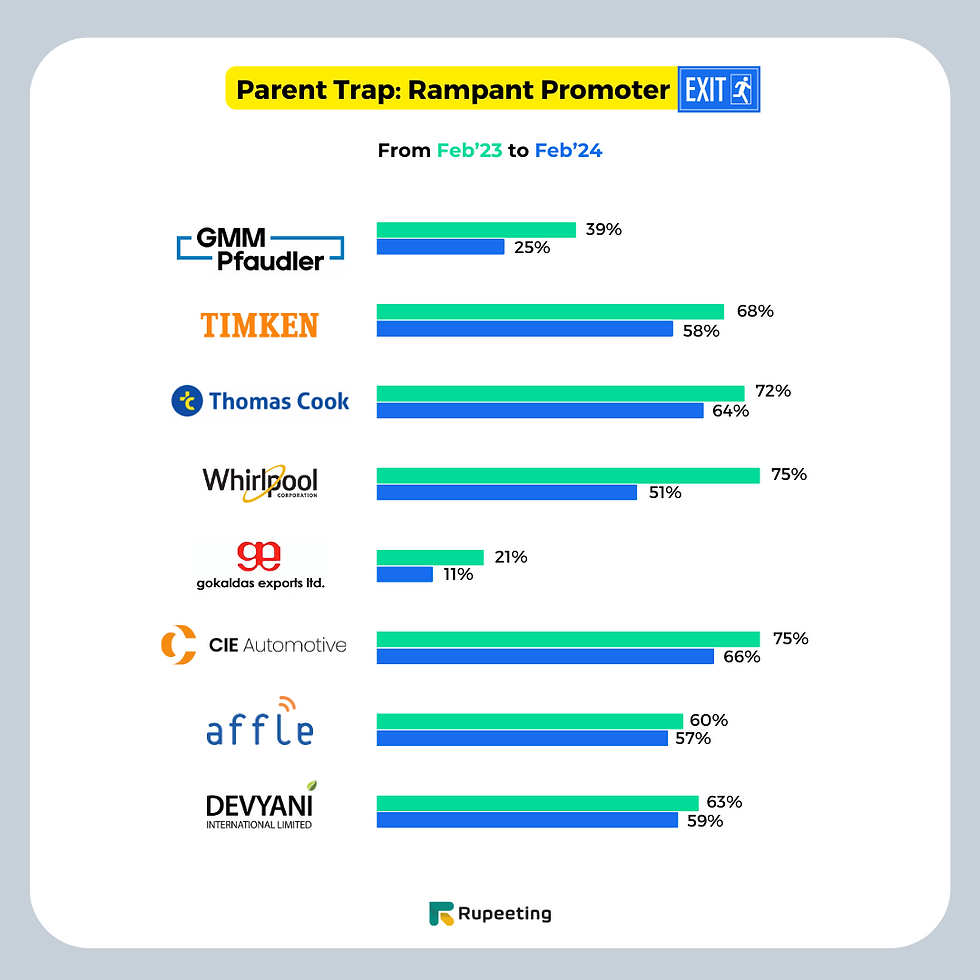Parent Trap: The Big Promoter Sell-Off 📉
- Feb 25, 2024
- 2 min read
Yum Restaurants India sold its 4.4% stake in Devyani International for Rs. 871 crore after being invested in this company since September 2021
While this was the most recent development as the markets shut for the weekend, the overall markets are seeing a promoter exodus!
In just the last year, we have seen 8 companies where promoters have diluted their stake or completely exited Indian listed entities, amounting to more than Rs. 12,000 crore in fund flows, most of which was recorded in the last 6 months.
Post the exit, which is being termed the largest one of its kind since 2018, most of these stocks have plummeted by 10-20% or stagnated, with fear taking its place in the hearts of investors - so what’s up, market?

Why Is This Happening?
While there are some company-specific reasons for these promoter exits, the broader theme seems more to do with:
extremely high valuations in Indian entities,
deleveraging of promoter/parent balance sheet, and
new investors wanting to make an entry/existing investors wanting a larger chunk
Most of these promoters had entered the Indian markets before 2013, and have waited a decade for these insanely high valuations to occur, thereby providing a “nifty” exit on their investments!
What Should Investors Do?
With companies like British American Tobacco intending to divest out of ITC shortly, it is safe to say that this isn’t the end of it.
More companies, both foreign and domestic, could be seen selling off stakes to liquidate at these high valuations, making it a dicey situation for investors looking to deploy new funds.
At the same time, new foreign entities are also enticed by the idea of the Indian Growth Story, with the likes of South Korean automotive giant Hyundai contemplating an Indian listing soon, proving that the long-term story remains in favour of Indian equities.
📉 Yet, the near-term selling pressure doesn’t make for a great case to invest blindly. A wait-and-watch mechanism can be adopted until this plays out and valuations look better.




Comments